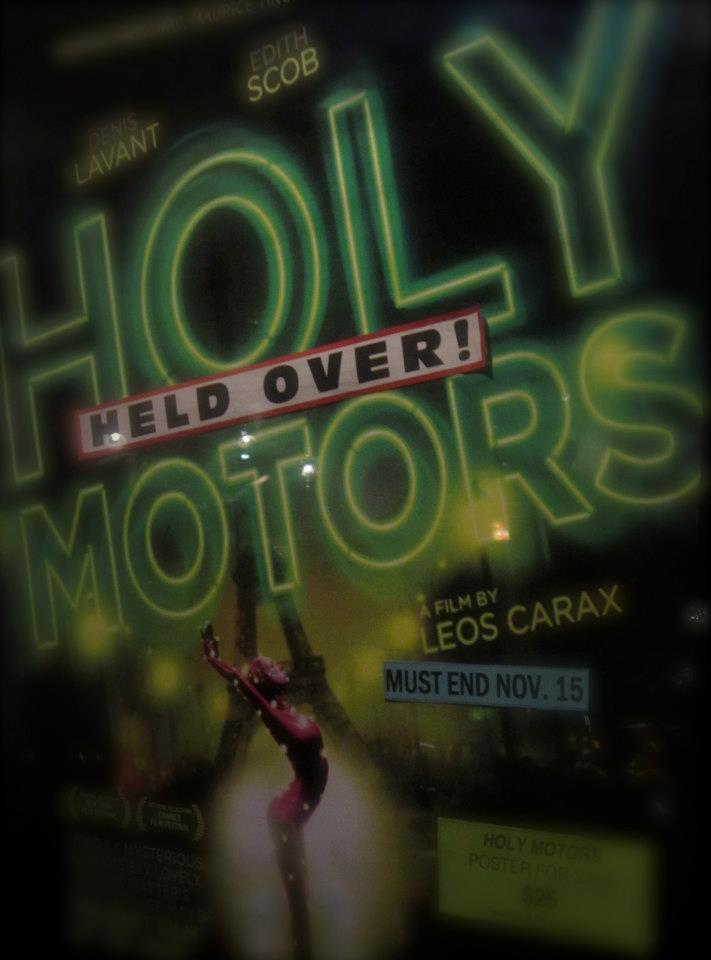In HOLY MOTORS Denis Lavant plays Oscar, a gnarly and dissipated man who is driven around Paris in a limousine to keep “appointments” for which he dons costume and makeup and performs violent or otherwise transgressive acts. It is a sort of invisible theater for clueless onlookers the purpose of which is, at least initially, obscure.
For a time, the conceit is on the indulgent side, which is not surprising from the director Léos Carax, who can be, well, that way. But impatience need not lead to boredom or to exasperation, and HOLY MOTORS gets more interesting as it starts to appear that Oscar may not be the only player in Carax’s world. Could it be that all social existence is staged by some vague overlord of the universe, perhaps a committee of the ruling class, or a corporation, or, even, a very odd sort of God?
Whether this forced playacting is universal or selective, benign or malign, societal or cosmic, is never completely clear nor is meant to be, but there is a certain glamour to the tale as it plays out, as well as a good deal of crudity and sheer nonsense. Kylie Minogue’s appearance as an old acquaintance of the man (professional? personal?) injects a note of genuine (unstaged?) human connection which is absent up to that point, as well as a musical number that, in the manner of several recent French cinematic experiments, comes quite out of nowhere.
Some non-realistic films posit possible worlds with an internal logic that buttresses their possibility; if there is such a coherence to the universe of Carax’s film, unfolding though it does in a Paris that resembles our own, I did not see it; but it can certainly be watched and pondered, a rather disorderly and not always tasteful meditation on the nature of reality, on our place in it, on whether we can trust it or not, and on what it says about our baser nature.
Check listings for viewing options.
